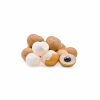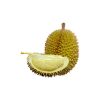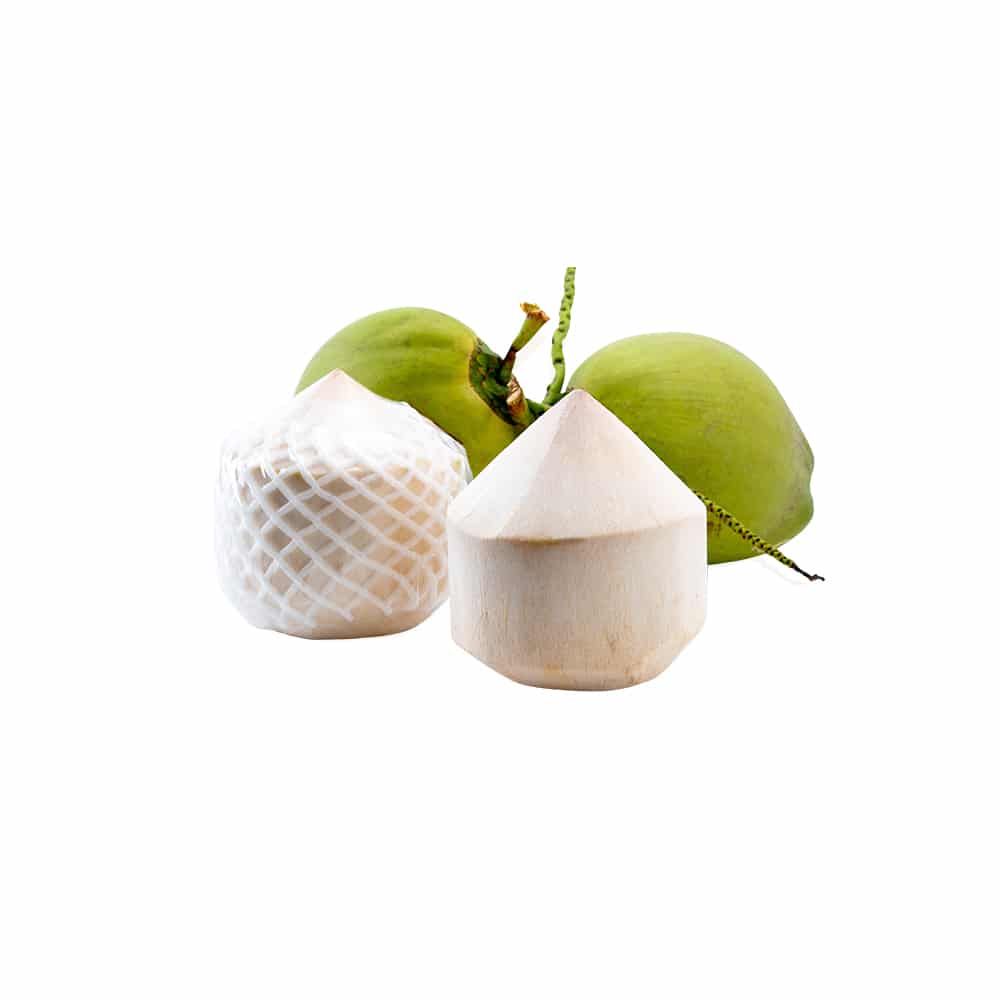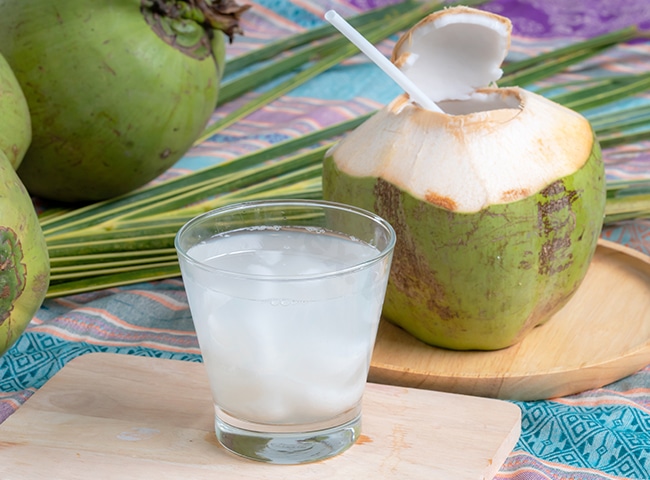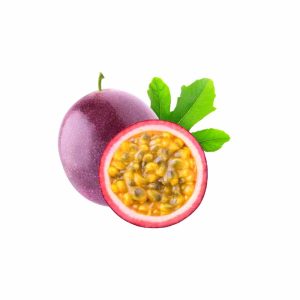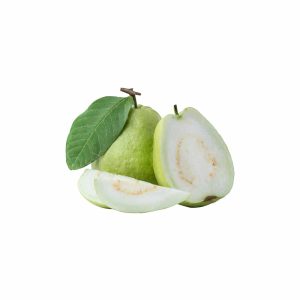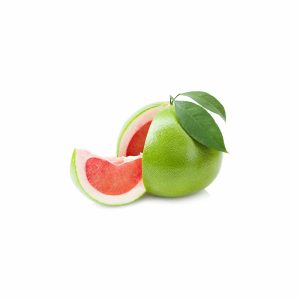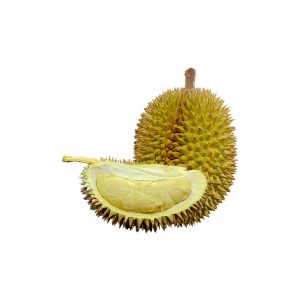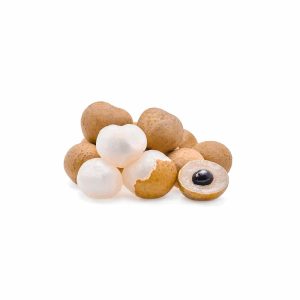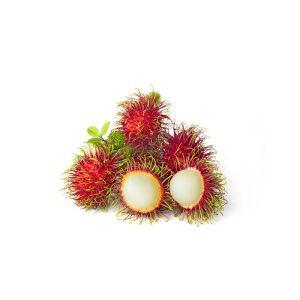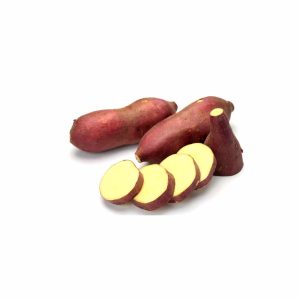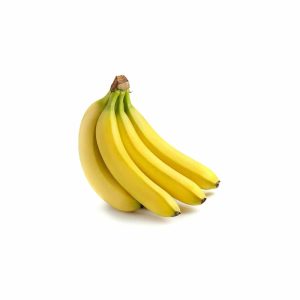Fresh coconut, scientifically known as Cocos nucifera, is a tropical fruit widely recognized for its versatility and nutritional richness. Encased in a hard, brown husk, the coconut harbors a unique combination of water, flesh, and oil, each offering distinct benefits. Its botanical designation, “nucifera,” translates to “nut-bearing,” emphasizing its status as a nut.
Popular Fresh coconut Exporting
- Diamond young coconut
- Easy open coconut (thumb)
- Polish coconut
- Whole coconut/Tender coconut
I. Nutritional Profile of Fresh Coconut
1. Coconut Water
- Low in calories and fat.
- Rich in electrolytes (potassium, magnesium, sodium), making it an effective hydrating beverage.
- Natural source of hydration in tropical regions.
2. Coconut Flesh
- Contains healthy saturated fats, including medium-chain triglycerides (MCTs).
- High in dietary fiber, promoting digestive health.
- Rich in vitamins (C, E, B-complex) and minerals (iron, copper).
3. Coconut Oil
- Predominantly composed of saturated fats, primarily lauric acid.
- Known for potential health benefits, including antimicrobial properties.
4. Overall Nutrient Composition
- Amino acids, providing building blocks for proteins.
- Trace elements such as zinc and selenium.
- Antioxidants with potential health-promoting effects.
II. Nutritional Benefits
A. Rich Source of Healthy Fats
1. Medium-Chain Triglycerides (MCTs)
- Coconut contains a high proportion of MCTs, such as lauric acid.
- MCTs are easily digestible and quickly converted into energy by the body.
- Potential benefits for weight management and increased energy expenditure.
2. Saturated Fats
- While coconut is relatively high in saturated fats, the type of saturated fats present differs from those found in animal products.
- Studies suggest that the saturated fats in coconut may have neutral or positive effects on cholesterol levels.
B. High in Fiber and Aids Digestion
1. Dietary Fiber Content
- Coconut flesh is a rich source of dietary fiber, promoting satiety and aiding in weight management.
- Dietary fiber supports digestive health by preventing constipation and promoting regular bowel movements.
2. Prebiotic Effects
- The fiber content in coconut may act as a prebiotic, promoting the growth of beneficial gut bacteria.
- Contributes to a healthy gut microbiome, which is linked to overall well-being.
- Contains Essential Vitamins and Minerals (e.g., Potassium, Magnesium)
1. Potassium
- Coconut water is a natural source of potassium, an essential electrolyte.
- Supports proper heart and muscle function, as well as maintaining fluid balance in the body.
2. Magnesium
- Found in both coconut water and flesh, magnesium plays a vital role in various physiological functions.
- Contributes to bone health, muscle function, and energy metabolism.
D. Boosts Immune System
1. Antioxidants
- Coconut contains antioxidants, including vitamins C and E, and polyphenols.
- Antioxidants help neutralize free radicals, reducing oxidative stress and supporting the immune system.
2. Lauric Acid
- Present in coconut oil, lauric acid has antimicrobial and antiviral properties.
- Supports immune defense against infections and pathogens.
E. Supports Heart Health
1. Cholesterol Profile
- Some studies suggest that the moderate consumption of coconut may have a neutral or positive impact on cholesterol levels.
- MCTs in coconut may contribute to a favorable lipid profile.
2. Cardioprotective Nutrients
- Potassium and magnesium contribute to maintaining healthy blood pressure.
- Antioxidants in coconut may help reduce oxidative stress associated with cardiovascular diseases.
III. Culinary Uses
A. Fresh Coconut Water
1. Hydration and Electrolyte Replenishment
- Coconut water is a natural electrolyte-rich beverage, making it an effective choice for hydration.
- Contains potassium, sodium, and magnesium, aiding in replenishing electrolytes lost through sweating or dehydration.
- Ideal for rehydration after physical activities or in hot climates.
2. Refreshing Beverage
- Served chilled, fresh coconut water offers a refreshing and hydrating alternative to sugary drinks.
- Popular as a natural sports drink or as a base for tropical beverages and smoothies.
B. Coconut Flesh
1. Culinary Versatility (Raw, Grated, Sliced)
- Fresh coconut flesh can be consumed in various forms, including raw, grated, or sliced.
- Raw coconut flesh has a crisp texture and a mildly sweet taste, suitable for snacking.
- Grated coconut is a common ingredient in both sweet and savory dishes, adding texture and flavor.
2. Ingredient in Various Dishes (Sweet and Savory)
- Sweet Dishes: Used in desserts, such as coconut cakes, cookies, and puddings.
- Savory Dishes: Grated or sliced coconut adds richness and flavor to savory dishes like curries, stews, and rice-based recipes.
- Coconut oil extracted from the flesh is a popular cooking oil in tropical cuisines.
C. Coconut Milk
1. Cooking and Baking
- Coconut milk is a creamy liquid extracted from grated coconut flesh, commonly used in cooking and baking.
- Adds a rich, tropical flavor to both sweet and savory dishes, including curries, soups, and sauces.
- Used in baking for moist and flavorful cakes, muffins, and other desserts.
2. Dairy Alternative for Lactose-Intolerant Individuals
- Coconut milk serves as a dairy-free alternative for those with lactose intolerance or dairy allergies.
- Used in coffee, tea, and cereal, offering a creamy consistency similar to traditional milk.
- Available in various forms, including canned, carton, and homemade, providing flexibility in culinary applications.
The culinary uses of fresh coconut extend far beyond traditional boundaries, offering a diverse range of textures and flavors. From hydrating beverages to enhancing the taste and texture of both sweet and savory dishes, coconut in its various forms plays a pivotal role in global cuisines, providing a unique and tropical touch to culinary creations.
IV. Skincare and Beauty
A. Coconut Oil
1. Moisturizing Properties
- Coconut oil is a natural emollient, known for its ability to deeply moisturize the skin.
- Rich in fatty acids, it helps to nourish and hydrate dry and flaky skin.
- The lightweight texture of coconut oil allows for easy absorption, leaving the skin feeling soft and supple.
2. Natural Makeup Remover
- Coconut oil serves as an effective and gentle makeup remover, breaking down even waterproof makeup.
- Its oily consistency helps dissolve makeup without harsh chemicals, making it suitable for sensitive skin.
- Leaves the skin cleansed and moisturized after makeup removal.
3. Hair Conditioner
- Applied as a hair conditioner, coconut oil helps improve hair health and manageability.
- Penetrates the hair shaft, providing deep conditioning and reducing protein loss.
- Adds shine and smoothness to the hair, addressing issues like frizz and split ends.
B. Exfoliating with Coconut Flakes
1. Natural Exfoliation
- Coconut flakes, when used as an exfoliant, provide a natural and gentle way to remove dead skin cells.
- The texture of coconut flakes helps to slough off dry and rough patches, promoting smoother skin.
- Suitable for various parts of the body, including the face, lips, and body.
2. DIY Scrubs
- Coconut flakes can be incorporated into homemade exfoliating scrubs with other natural ingredients like honey, sugar, or yogurt.
- These DIY scrubs offer a cost-effective and chemical-free alternative to commercial exfoliating products.
- Regular exfoliation with coconut flakes can improve skin texture, promote circulation, and give a radiant complexion.
3. Nourishing Properties
- In addition to exfoliation, coconut flakes contain healthy fats that can nourish and moisturize the skin.
- The natural oils in coconut flakes contribute to the restoration of the skin’s lipid barrier, preventing excessive dryness.
V. Medicinal Uses
A. Antimicrobial Properties
1. Lauric Acid Content
- Coconut contains lauric acid, a fatty acid with potent antimicrobial properties.
- Lauric acid is converted into monolaurin in the body, which has demonstrated antimicrobial effects against bacteria, viruses, and fungi.
- May contribute to the body’s defense against infections and pathogens.
2. Topical Applications
- Coconut oil is used topically for its antimicrobial benefits, aiding in the treatment of skin infections, wounds, and minor cuts.
- Applied to wounds, it forms a protective barrier against bacteria and promotes the healing process.
B. Anti-inflammatory Effects
1. Polyphenols and Phytonutrients
- Coconut contains various polyphenols and phytonutrients with anti-inflammatory properties.
- These compounds may help mitigate inflammation within the body, providing potential relief for inflammatory conditions.
2. Application in Skin Conditions
- Coconut oil is often used to soothe and alleviate skin conditions characterized by inflammation, such as eczema and psoriasis.
- The anti-inflammatory effects may help reduce redness, itching, and discomfort associated with these skin conditions.
C. Traditional Medicinal Practices
1. Ayurvedic Medicine
- In Ayurvedic medicine, coconut is utilized for its cooling properties and is believed to balance the Pitta dosha.
- Used to alleviate heat-related conditions, digestive issues, and skin disorders in traditional Ayurvedic practices.
2. Traditional Southeast Asian Medicine
- In Southeast Asian traditional medicine, coconut is employed to address various ailments.
- Used for digestive health, respiratory issues, and as a general tonic in traditional herbal preparations.
D. Potential Benefits for Specific Health Conditions (e.g., Diabetes, Alzheimer’s)
1. Diabetes Management
- Some studies suggest that the MCTs in coconut oil may have positive effects on blood sugar levels and insulin sensitivity.
- May offer potential benefits for individuals with diabetes when incorporated into a balanced diet.
2. Brain Health and Alzheimer’s Disease
- Preliminary research indicates that certain compounds in coconut, such as MCTs and ketones, may have neuroprotective effects.
- Studies exploring the impact of coconut-derived compounds on cognitive function, especially in the context of Alzheimer’s disease, are ongoing.

